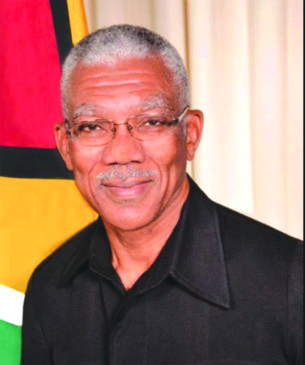
In the coming year 2020, public servants will get a salary increase, as Government has approved an across-the-board salary hike, including retroactive payouts.
President David Granger made the announcement that the increases would be tax free and retroactive from January 2019. This was after a meeting was facilitated on Tuesday between the Guyana Public Service Union (GPSU) and senior Government officials. The Union had called out the coalition Administration on its arbitrary increases after it failed to deliver its promise of a consensual approach.
The President’s announcement comes mere days after Finance Minister Winston Jordan said that the public service has too many workers and about 15,000 can be fired. These persons are from the public service, Guyana Power and Light and Guyana Sugar Corporation (GuySuCo). He claimed that the APNU/AFC is “generous” by not firing 15,000 immediately but said that the terminations will be phased over a period of time.
Meanwhile, giving a breakdown on Wednesday, Granger stated that the minimum wage for public servants swould be increased to G$70,000 from G$64,220 per month. Persons in this category will be receiving G$69,336 this December – a sum in excess of their base salaries. This is a nine per cent increase from the current wages and is extended to sweeper-cleaners in the public education system.
Other public servants earning between G$100,000 and under G$1 million will receive an 8.5 per cent increase; and those earning less than G$100,000 will receive a nine per cent increase in their salaries.
Meanwhile, Cabinet also recommended increases in several stipends, with station allowances increased from G$2800 to G$10,000; hinterland allowances will be increased from G$4000 and G$12,000 to G$24,000 and the risk allowance increased to G$5000. The clothing allowance for teachers will move from G$13,000 and G$22,135 to G$15,000 and G$30,000 respectively. On-call allowances for doctors will be raised in the coming year, the President said.
“Public servants, including teachers, nurses, doctors, members of the defence force, police force and the security services will benefit from these permanent salaries increases…The income tax rate has been reduced and the tax on employers’ contribution to NIS (National Insurance Scheme) was removed,” Granger said in his address to the nation.
Erosion of
household wealth
Meanwhile, People’s Progressive Party Presidential candidate, Dr Irfaan Ali, on Wednesday said that the destruction of the economy, eroding of household wealth and disposable income cannot be addressed with this increase.
“Take for example the level of taxation which plays an important role in the decline of private consumption. Since 2015, total tax revenue is expected to increase in 2019 by more than G$98.7B or 55 per cent. Of this total VAT represents G$17.7B or 18 per cent. Indeed, the increase is worrisome since total output or GDP has increased by a mere 9 per cent or $35 Billion. What this means is that the government have been taking away more from the people than what is actually being produced,” Ali said on Wednesday. He added that clearly more personal and household resources is used to pay taxes hence less disposable income. “To make matters worse job losses of roughly over 30,000 nationwide. The sugar industry and forestry sector which employ a large majority of low-income and low-skilled workers, were among the hardest hit sectors with roughly 7,000 and 5,000 job losses, respectively. The entire productive sector is in decline as a direct result of poor policies and bad governance.”
He added that when adjusted for inflation the net increase in salaries would be even less. Take for example, the price of food and clothing, two of the basic necessities, are expected to increase by 3.5 per cent and five percent , respectively in 2019.
Upon the announcement last week that Government would increase public servants’ salaries, GPSU President Patrick Yarde said that the Union was “fed up” with the outcome yet again.
“This is most disturbing to us. We would wish to state that we will respond to any arbitrary increase in a most vigorous manner …We are fed up with arbitrary impositions,” he had positioned.
He also reflected on Finance Minister Winston Jordan’s budget speech some four years ago, which recognised the inadequacies in the public service, which were never addressed.
“If you look at Minister Jordan’s speech in 2015, you’ll see a commitment based on a mutually-arrived-at decision that we had with him. He recognised how woefully inadequate certain conditions were in the public service. Today, four years after, they’re still the same.”



